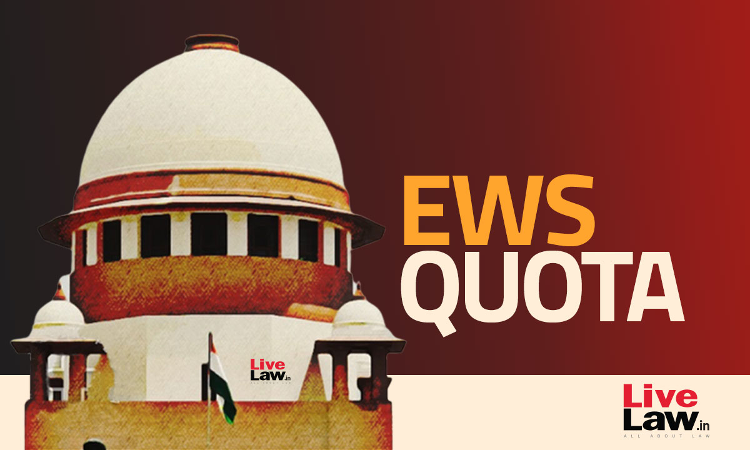EWS Reservation- Supreme Court Constitution Bench Hearing DAY 2- LIVE UPDATES
LIVELAW NEWS NETWORK
14 Sept 2022 10:33 AM IST

Live Updates
- 14 Sept 2022 11:48 AM IST
Kumar: This was the machinery created to identify backward classes. First commission was appointed in 1953 when the president appointed a commission under Chairman Acharya Kaka Kalelkar. He sent report in 1955. The GOI communicated the copy of report and deliberating on it.
Next Story


